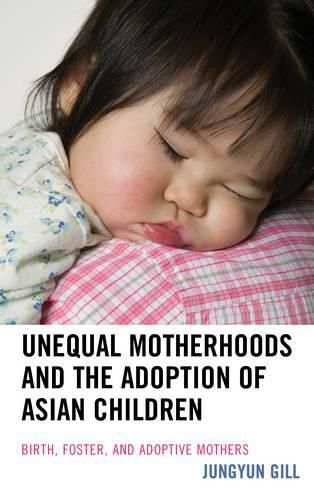Readings Newsletter
Become a Readings Member to make your shopping experience even easier.
Sign in or sign up for free!
You’re not far away from qualifying for FREE standard shipping within Australia
You’ve qualified for FREE standard shipping within Australia
The cart is loading…






This book explores a deeply personal aspect of globalization: the adoption of Asian children by white Americans. It is based on dozens of interviews with adoptive mothers and adoption social workers, nearly two hundred letters and essays written by Korean birth mothers who put their children up for adoption, and field work at an adoption agency in South Korea. It also includes analyses and explanations of U.S. and South Korean governments’ social characteristics and policies regarding adoptions and how relations between nations have affected international adoption. The book focuses on whether the commonly held notion that adoptions are to serve children’s welfare and their best interests has tended to render gendered aspects of international adoptions invisible. Factors such as gender inequality, social control of women’s reproductive power, patriarchic family structure, and social beliefs concerning womanhood and motherhood that affect international adoptions are revealed in this book. The multiple ways in which adoptive, birth, and foster mothers experience gender oppression from their different social positions of class, race, and nationality are explored and the interdependencies and inequalities of the motherhoods of these three groups of women are brought to light.
$9.00 standard shipping within Australia
FREE standard shipping within Australia for orders over $100.00
Express & International shipping calculated at checkout
This book explores a deeply personal aspect of globalization: the adoption of Asian children by white Americans. It is based on dozens of interviews with adoptive mothers and adoption social workers, nearly two hundred letters and essays written by Korean birth mothers who put their children up for adoption, and field work at an adoption agency in South Korea. It also includes analyses and explanations of U.S. and South Korean governments’ social characteristics and policies regarding adoptions and how relations between nations have affected international adoption. The book focuses on whether the commonly held notion that adoptions are to serve children’s welfare and their best interests has tended to render gendered aspects of international adoptions invisible. Factors such as gender inequality, social control of women’s reproductive power, patriarchic family structure, and social beliefs concerning womanhood and motherhood that affect international adoptions are revealed in this book. The multiple ways in which adoptive, birth, and foster mothers experience gender oppression from their different social positions of class, race, and nationality are explored and the interdependencies and inequalities of the motherhoods of these three groups of women are brought to light.